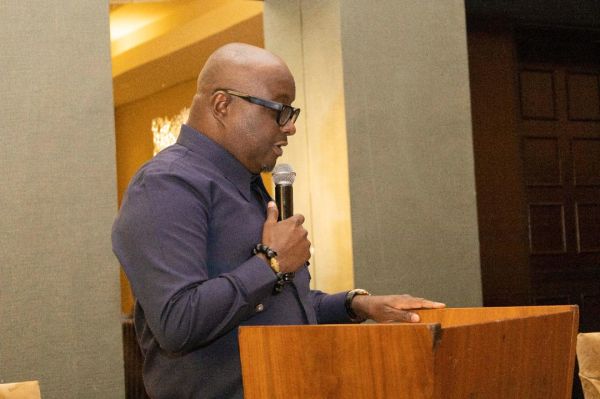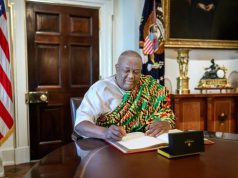The Chief Executive Officer of the Ghana Free Zones Authority (GFZA), Ambassador Mike Oquaye Jnr. recently delivered a compelling address at the National Policy Forum on Special Economic Zones (SEZs), focusing on the theme “Special Economic Zones: A Force for Industrialization”?.
The event which took place in Accra on June 7, 2024 delved into findings from studies conducted by the Institute of Statistical, Social and Economic Research (ISSER) of the University of Ghana and the Kiel Institute for World Economy (IfW) in Germany.
It was attended by lecturers from the University of Ghana-Legon, representatives from ISSER, academia, the media, and industry.
In his keynote address, Ambassador Oquaye Jnr underscored the significance of SEZs as critical drivers of economic success, particularly in light of the African Continental Free Trade Area (AfCFTA) implementation of which Ghana is a member state.
He mentioned that since its establishment in 1995, the Ghana Free Zones Authority has championed export-led industrialization, now pivoting towards a comprehensive adoption of SEZ policies to harness their manifold advantages.
“SEZs play a pivotal role in Ghana’s economic trajectory and therefore stakeholders must harness their potential to propel industrialization and foster sustainable development.”
“SEZs across Ghana encompass over 7,000 acres of land, including zones like the Tema Export Processing Zone, Sekondi Industrial Park, Ashanti Technology Park, Yabiw/Shama Land Bank, and Afienya Special Economic Zone. These zones are poised to facilitate various industrial activities and technological innovations, driving economic diversification,” the Free Zones Authority CEO highlighted.
Ambassador Oquaye Jnr. pointed to digitalization initiatives such as the implementation of the ICUMS system and the forthcoming Single Window system which aim to enhance operational efficiency and transparency for Free Zones Enterprises (FZE).
He emphasized that these platforms aim to streamline processes such as registration, visa applications, exemptions, and license renewals to foster a conducive business environment.
Touching on regulatory compliance, Ambassador Oquaye Jnr. reaffirmed the Ghana Free Zones Authority’s commitment to upholding regulations to safeguard the integrity of SEZs and address concerns of stakeholders.
“Measures have been instituted to address concerns regarding the misuse of raw materials, ensuring transparency, and deterring misconduct,” he assured.
The forum drew esteemed personalities including Dr. Humphrey Ayim-Darke, President of the Association of Ghana Industries (AGI) who stated that Special Economic Zones epitomize the convergence of strategic planning, policy initiatives and entrepreneurial spirit.
“They [SEZs] offer a haven where businesses can thrive, unbound by constraints of conventional regulations,” the AGI president said.
The research findings presented at the forum emphasized the positive impact of Ghana’s Free Zones Regime on wealth creation, productivity, innovation, and firm profitability.
Over the years, SEZs, with their tailored economic regulations and incentives, have proven adept at attracting Foreign Direct Investment (FDI), fostering export-oriented growth, and catalyzing industrial development.
Key statistical highlights from SEZ performance further illustrated this success story:
• Employment within SEZs surged by 19.7% between 2020 and 2023, with direct employment reaching 35,399 individuals and nearly 500,000 indirect jobs generated.
• Capital investment in SEZs exhibited robust growth, increasing from $114.62 million in 2020 to $143.24 million in 2023, despite temporary setbacks post-COVID.
• Export revenue soared by 13% from $1.5 billion in 2020 to $1.7 billion in 2023, bolstering Ghana’s export potential.
• The number of enterprises operating within Ghana’s Free Zones expanded to 258 companies, fostering a diverse industrial ecosystem comprising wholly Ghanaian-owned, wholly foreign-owned, and mixed-share ownership entities.
Source: Peacefmonline.com
| Disclaimer: Opinions expressed here are those of the writers and do not reflect those of Peacefmonline.com. Peacefmonline.com accepts no responsibility legal or otherwise for their accuracy of content. Please report any inappropriate content to us, and we will evaluate it as a matter of priority. |
Featured Video

















